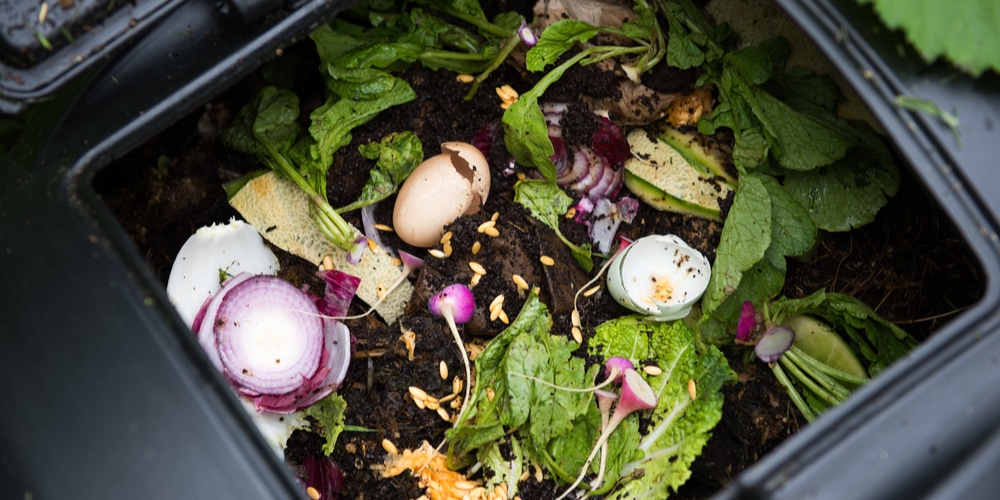Bones are the last things you want to add to your compost pile or bin, right? Everyone knows you should never, ever put bones in the green waste container. The only kind of bones that belong in a composter are fruit and vegetable scraps. Right?
As it turns out, some bones will decompose just fine when added to a compost pile or bin. However, we must first understand the various types of bones and whether they can be decomposed. This article will answer the question, ‘Can You Compost Bones?’
Can You Compost Bones?: Types of Bones
Chicken Bones
The first type of bone we will explore will be chicken bones. You might think that since a chicken has very little calcium in it’s skeletal structure, that their bones should break down fairly easily and quickly in the composting process. Generally speaking you would be right; however, there are times when chicken bones can become problematic.
Chicken bones which have been charred will not decompose until the char has been removed. What makes charred bones different from other types of chicken bones is that the high heat has caused them to become brittle and they will not break down unless the char is first scraped off.
Can You Compost Bones?: Fish Bones
Fish bones are very similar to chicken bones in that they do not generally decompose well in a compost pile or bin. However, fish is an aquatic animal and therefore its bone structure is more porous than the skeletal structure of land animals like chickens. These pores allow water to pass through the bone easily, allowing it to break down rather quickly.
This makes fish bones a good choice for composting; however the only types of fish bones that will work well are those of small, oily fish like herring and sardines. If you try to compost larger fish bones, like those of tuna or snapper, the bone structure will not break down and could cause problems with the composting process.
Cow Bones
Cow bones are generally good for composting provided they have no meat or other animal parts attached to them. Cow bones, which are very dense and massive, do not decompose easily even when they are buried deeply in the compost pile. Cow bones that have been connected to animal tissue with tendons or ligaments will not break down in the compost pile.
Can You Compost Bones?: Pig Bones
Pig bones may or may not break down easily depending on the type of pig. Generally speaking, the bones of pigs which are bred for their meat will not break down well in a compost pile because they have been bred with large amounts of fat and protein. However, the bones of pigs that have been raised for their lard will decompose nicely in a compost pile.
Horse Bones
Horse bones are very dense and massive just like cow bones, so they will not decompose quickly in the compost pile. The best thing to do with horse bones is to bury them deeply in the pile so that they are surrounded by other organic materials which will help with decomposition.
Game Animals Bones
Game animals are similar to other types of livestock in that their bones will not decompose well when added to a compost pile or bin. However, the bones of very small animals such as squirrels, rabbits, and birds can be added to your compost pile if they are well cleaned.
What Makes Bones a Good Addition to the Compost Pile?
So what makes bones a good addition to your compost pile or bin? Well, even if the bone is not going to break down completely it will still serve a purpose in the composting process.
1. Calcium – Bones are made up of calcium, and calcium is an important ingredient in compost piles because it helps to neutralize the acidity of the pile.
2. Collagen – Bones are also are made up of collagen, which is a type of protein that helps to hold soil together. It will also help bind other organic materials together so that they can be easily decomposed.
3. Waterproofing – Bones will also help keep the compost pile moist and this is important because dry compost piles tend to get too hot and this will inhibit the decomposing process.
4. Lining – Bones can also serve as a natural lining for your compost bin or pile because they will keep the inside of the composting structure from getting all torn up.
Can You Compost Bones?: Conclusion
As you can see, bones are a good addition to your compost pile or bin. However, even though most types of bones will not break down completely they still have important functions in the composting process.
Related article: Why does my compost have mold?

